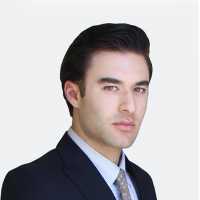
15 Aug Women Whose Mothers Lived to 90, Likely To Have Health Old Age
MedicalResearch.com Interview with:
Aladdin H. Shadyab, PhD MS, MPH, CPH
Department of Family Medicine and Public Health
University of California, San Diego
twitter.com/TheDrAladdin
MedicalResearch.com: What is the background for this study? What are the main findings?
Response: Previous studies have shown that offspring of long-lived parents are not only likely to live longer but to also avoid major chronic diseases (e.g., coronary heart disease), have fewer chronic disease risk factors, and to have better cognitive and physical function in late life. However, few studies have examined parental longevity in relation to an overall measure of successful aging that included reaching old age free of both major diseases and disabilities.
The objective of our study was to determine if parental longevity predicted healthy aging, defined as survival to age 90 without any major age-related diseases (coronary heart disease, stroke, diabetes, cancer, or hip fracture) or physical limitations. The participants of our study were from the Women’s Health Initiative, a large, longitudinal study among postmenopausal women from the United States.
We observed that women whose mothers survived to at least age 90 years were 25% more likely to achieve healthy aging. We also observed that women whose fathers only lived to age 90 did not have increased likelihood of healthy aging. However, women whose mother and father both lived to age 90 were the most likely to achieve healthy aging.
MedicalResearch.com: What should readers take away from your report?
Response: Our main finding was that having long-lived parents, especially a mother who lived to age 90, increased the likelihood of daughters living to age 90 without any major chronic diseases and with the ability to perform activities such as climbing stairs, playing golf, walking several blocks, and carrying groceries independently in late life. Our findings support the idea that genetic, behavioral, and lifestyle factors passed down from generations may influence aging outcomes among women. For example, women in our study who were long-lived likely inherited genes from their parents that allowed them to age well into late life. Furthermore, these women may have learned certain lifestyle behaviors, such as regular exercise and healthy diet, from their parents, allowing them to live a longer and healthier life. For example, we observed that women in our study who had long-lived parents were more likely to have greater amounts of exercise and also better quality diets.
MedicalResearch.com: What recommendations do you have for future research as a result of this work?
Response:Future studies are needed in large cohorts to examine the association of parental longevity and healthy aging. Because our study was conducted exclusively among women, further studies are needed among men as well. Additional research should also examine how genetic, environmental, and lifestyle factors interact during the life course to determine aging outcomes among offspring.
MedicalResearch.com: Is there anything else you would like to add?
Response: In general, people should continue practicing positive lifestyle behaviors, such as regularly engaging in physical activity and consuming healthy diets, in order to increase their chances of a long and healthy life.
We have no conflicts of interest to disclose.
Citation:
Aladdin H Shadyab, JoAnn E Manson, Wenjun Li, Margery Gass, Robert L Brunner, Michelle J Naughton, Brad Cannell, Barbara V Howard, Andrea Z LaCroix. Parental longevity predicts healthy ageing among women. Age and Ageing, 2018; DOI: 10.1093/ageing/afy125
[wysija_form id=”3″]
[last-modified]
The information on MedicalResearch.com is provided for educational purposes only, and is in no way intended to diagnose, cure, or treat any medical or other condition. Always seek the advice of your physician or other qualified health and ask your doctor any questions you may have regarding a medical condition. In addition to all other limitations and disclaimers in this agreement, service provider and its third party providers disclaim any liability or loss in connection with the content provided on this website.
Last Updated on August 15, 2018 by Marie Benz MD FAAD
